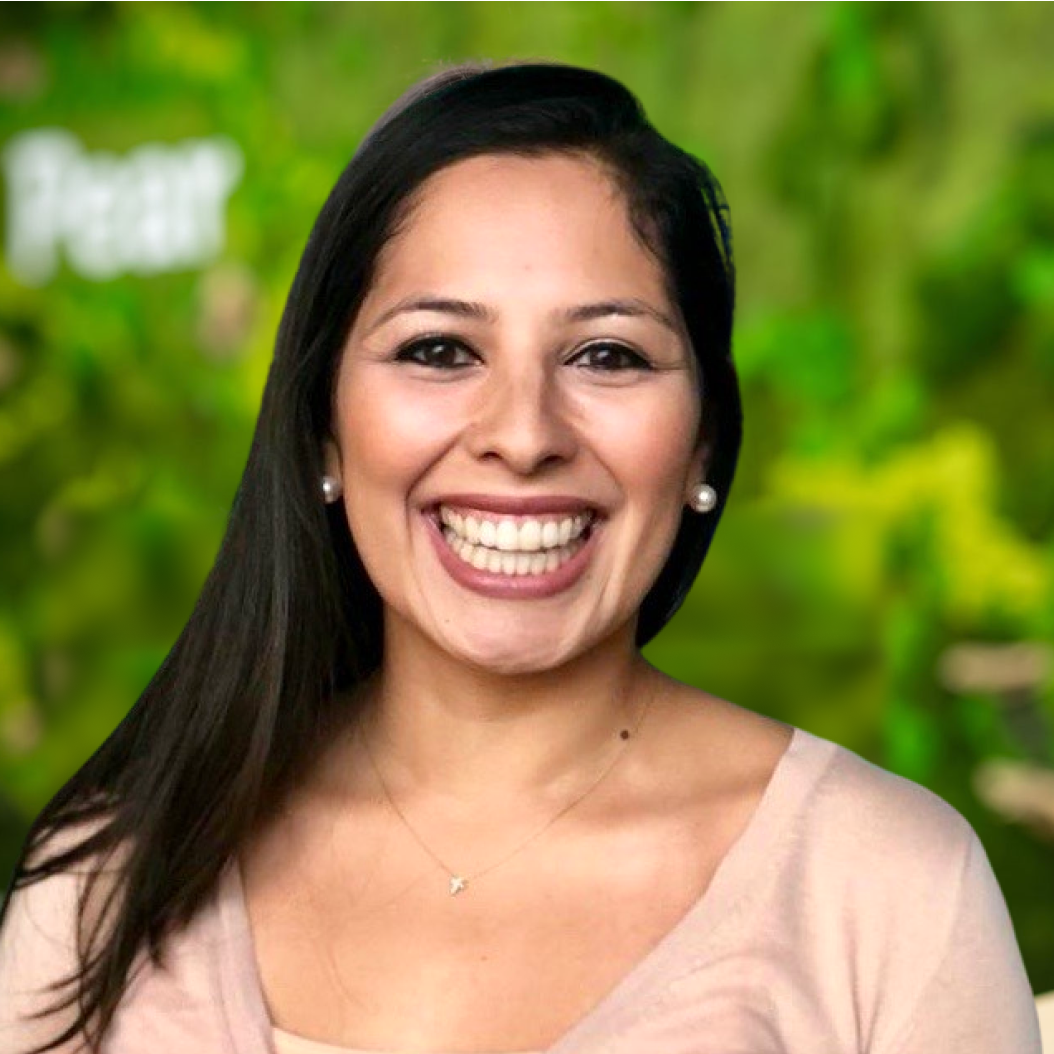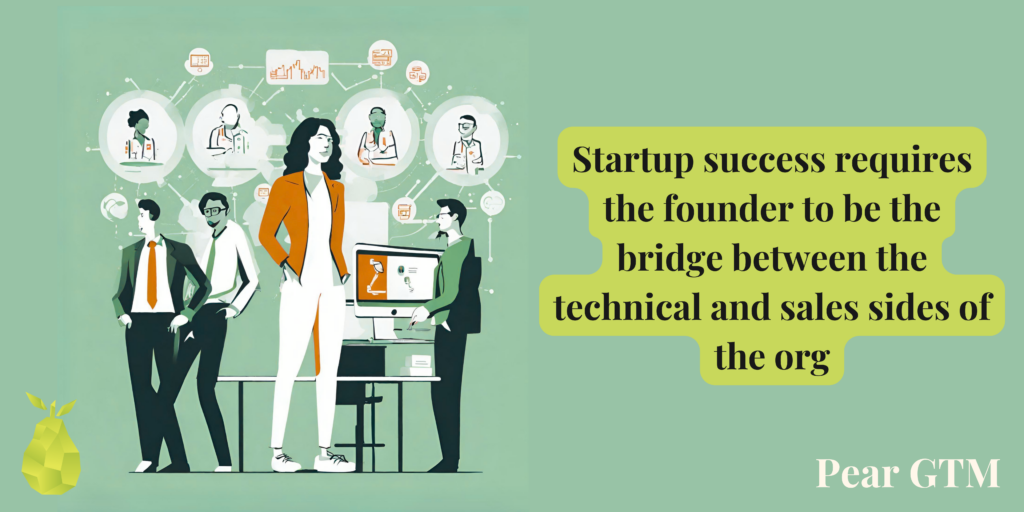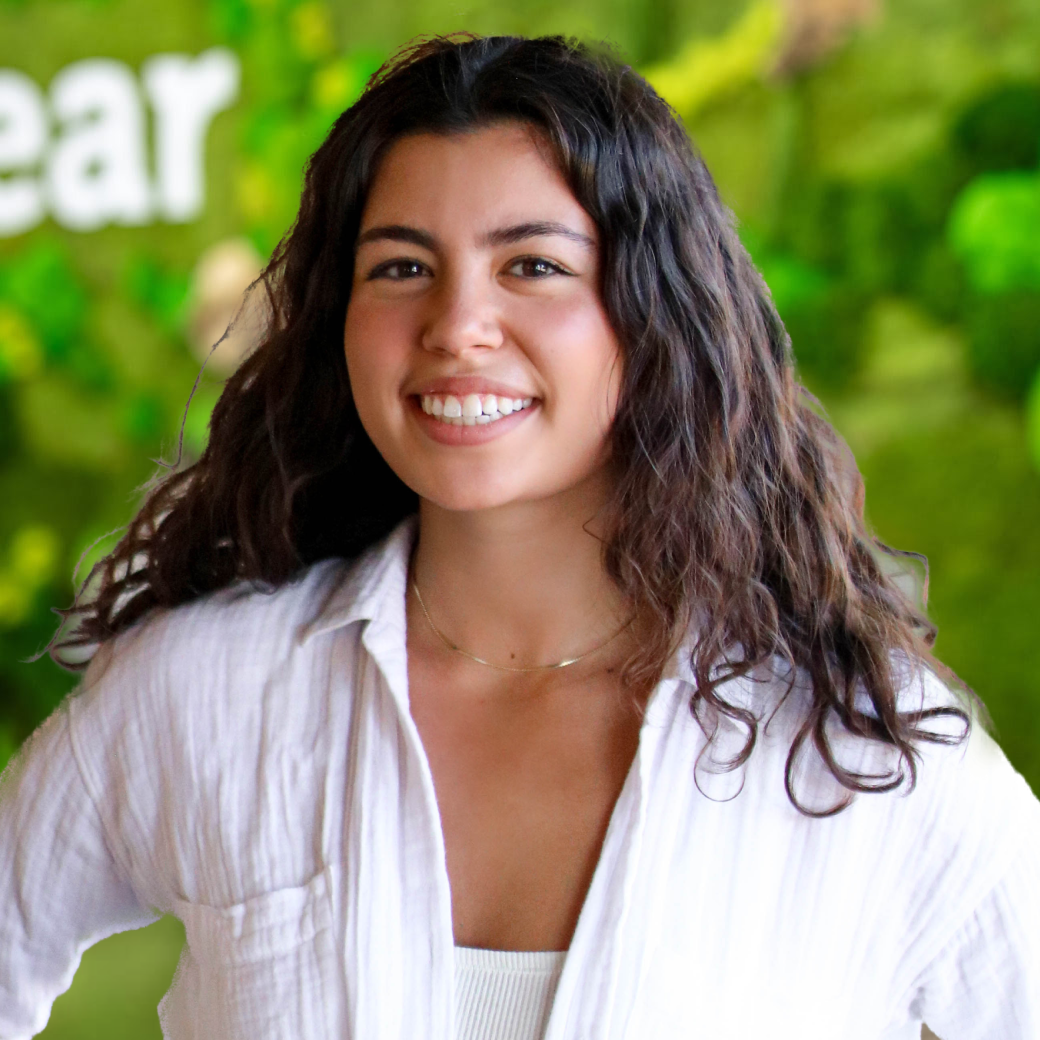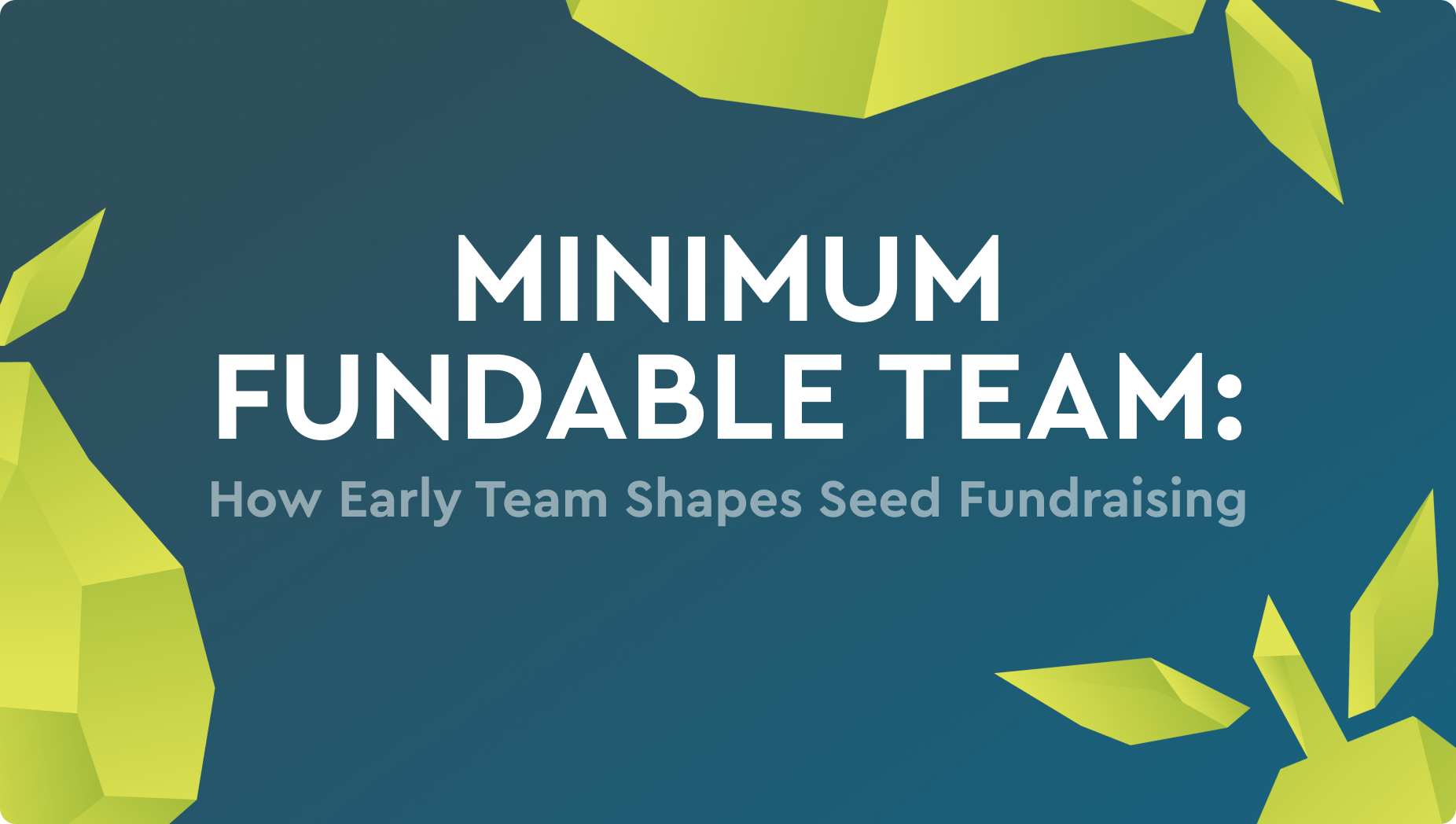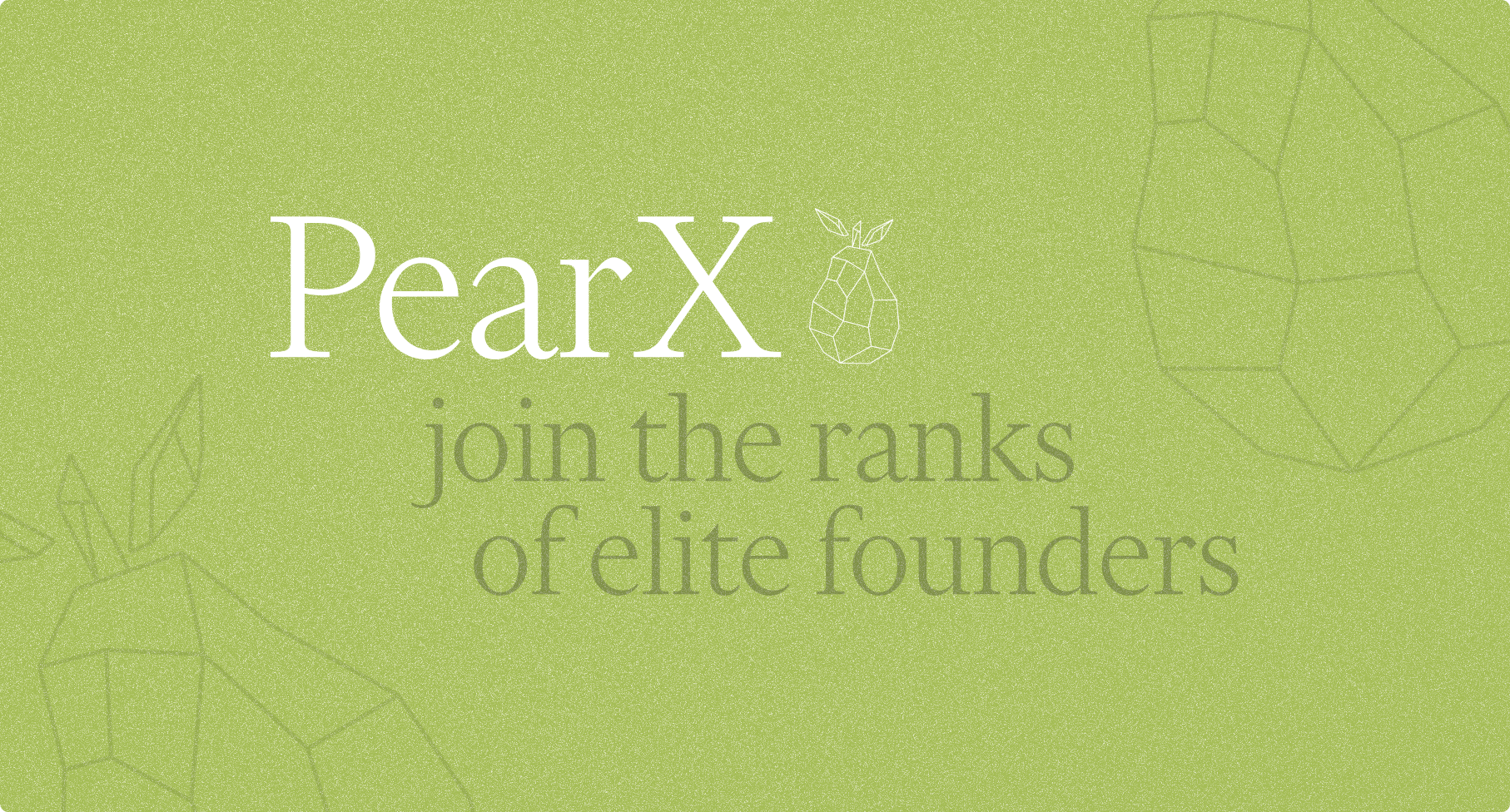Early-stage company building poses a unique set of challenges, and we’ve created what we believe to be the best accelerator out there for pre-seed founders. PearX is our exclusive, small batch, 14 week program. PearX alums have extremely high likelihood of startup success. In fact, 90% of our companies go on to raise a successful round from top tier investors and have cumulatively raised $2B in venture capital.
But don’t take our word for it – we spoke with 3 recent PearX alums about their experiences going through PearX, and what sets it apart from other programs:
Bobyard (PearX S23):
Bobyard automates the construction takeoff process with CV and NLP models to make cost estimates 10x faster while eliminating mistakes. After Demo Day, Bobyard raised a $3.5M round from Primary.

EarthXYZ (PearX S23):
EarthXYZ makes imaging hardware & analytics software to create & process the highest resolution hyperspectral data, using ML & genAI to deliver insights. They’re in the final stages of closing a sizable round; the only capital before this was their PearX check.

Advex (PearX S23):
Advex works on synthetic data for vision, solving the biggest bottleneck for applied machine learning. After Demo Day, Advex raised $3M from Construct Capital, Emerson Collective, and Pear.

Answers have been edited for clarity and brevity.
What did you learn from PearX?
Bobyard: I learned what good looks like. I’m a solo founder and a first-time founder. I didn’t know how fast a team could move until I entered PearX. The structure of the cohort, working with companies that are in similar places as you, pushes you to go further.
I also learned how important it is to deeply understand your customer and the value prop of your product. Ajay and Sean constantly pushed me to dive deeper into the customer psyche, discovering where my product could be worth a lot more.
Earth XYZ: During the accelerator, we nailed down customer discovery, understanding what our customers want from our technology and ironing out what we needed to build. After Demo Day, we got a ton of new customers — we juggled between supporting the customers while continuing to build on the technical side.
Advex: During PearX, we went from having a potential customer to really fleshing out what our V0 was going to look like. We closed a real paying customer and since then, we’ve closed several more customers, raised the seed round, and grown our team to 5 people.
What sets the Pear team apart?
Bobyard: They have all bases covered. Pear knows the problems that most startups deal with, regardless of the vertical or the industry.
Pear’s an order of magnitude smaller than the other accelerator programs out there, which means you get more than twice the attention, and you get support from a partner for each of the major categories.
Earth XYZ: When I talk about Pear, the first thing that comes to mind is resources. I’ve heard friends who have gone through other accelerators where they receive a random firehose of generalistic knowledge. At Pear, I talked to dedicated partners 1:1 on specific strategies.
How has Pear helped your company the most?
Bobyard: I’d never fundraised before. Demo Day is a really special experience, but without structure and guidance towards preparing your presentation, it’s very difficult to pull off.
The next thing is hiring. It’s pretty difficult to convince someone that’s better than you to work for you, but hiring a great team is so important to the company. I worked with Nate after the accelerator to hire the first founding engineers at Bobyard, and all of them turned out to be amazing. He helped me with the job descriptions, the interview rounds, what we should look for… it’s a lot of knowledge that accrues over many years of hiring for startups.
Advex: As we’re now a seed stage company, we’ve really been leveraging the hiring help from Pear and it’s been a huge help. They’ve helped us understand how the job description should evolve over time, ensuring that we’re hiring the right person that we need for whatever the business needs are at the time.
Describe Pear in 3 words:
Bobyard:
Home— I spent all my waking hours in the Pear office during PearX.
Support— the team believed in my vision and took a chance on me.
Family— I work out of the Pear SF office now, and every day I see people from the Pear team.
Advex:
Grounding— they’ve helped us understand why our customers are reacting the way they are, given their previous experience.
Flexible — helping us get what we need, whether it’s product or hiring.
Friendly— they help us think about the past and the future, working on improving at all times and making good decisions moving forward.
Any advice for early-stage founders?
Bobyard: You should apply. When you do apply, don’t force yourself to be a founder you are not or a company you are not. Build conviction on the thing you’re building.
Earth XYZ: If you’re a founder like me with deep tech, hard tech, or non-traditional software based companies, don’t be turned away from applying to PearX. Beyond software, Pear has a ton of expertise, and partners bring in their own network and resources. Early-stage building is company-agnostic in many ways, and the Pear team has a deep bench of expertise.
Applications for PearX are due Wednesday, May 1. Apply today!

